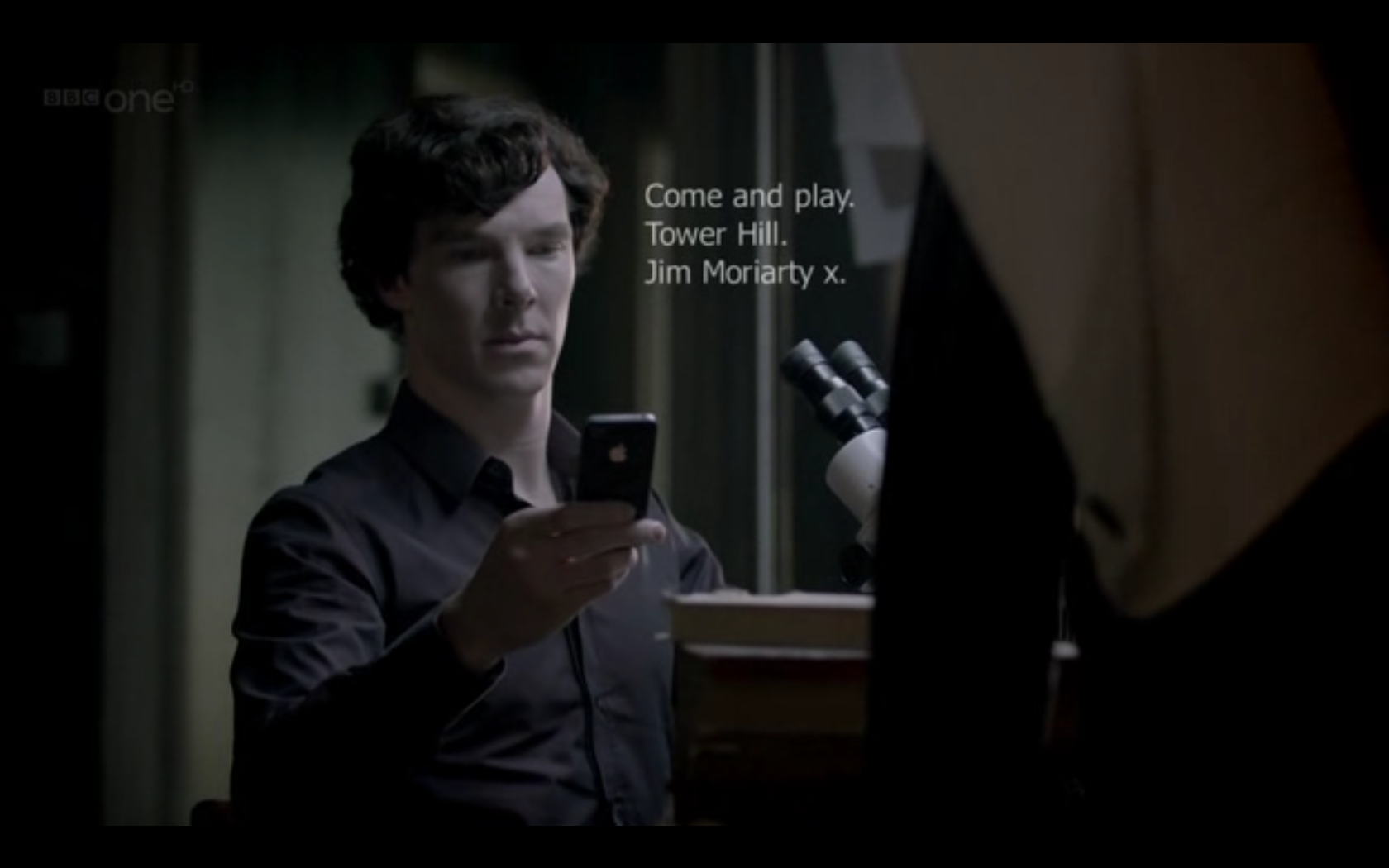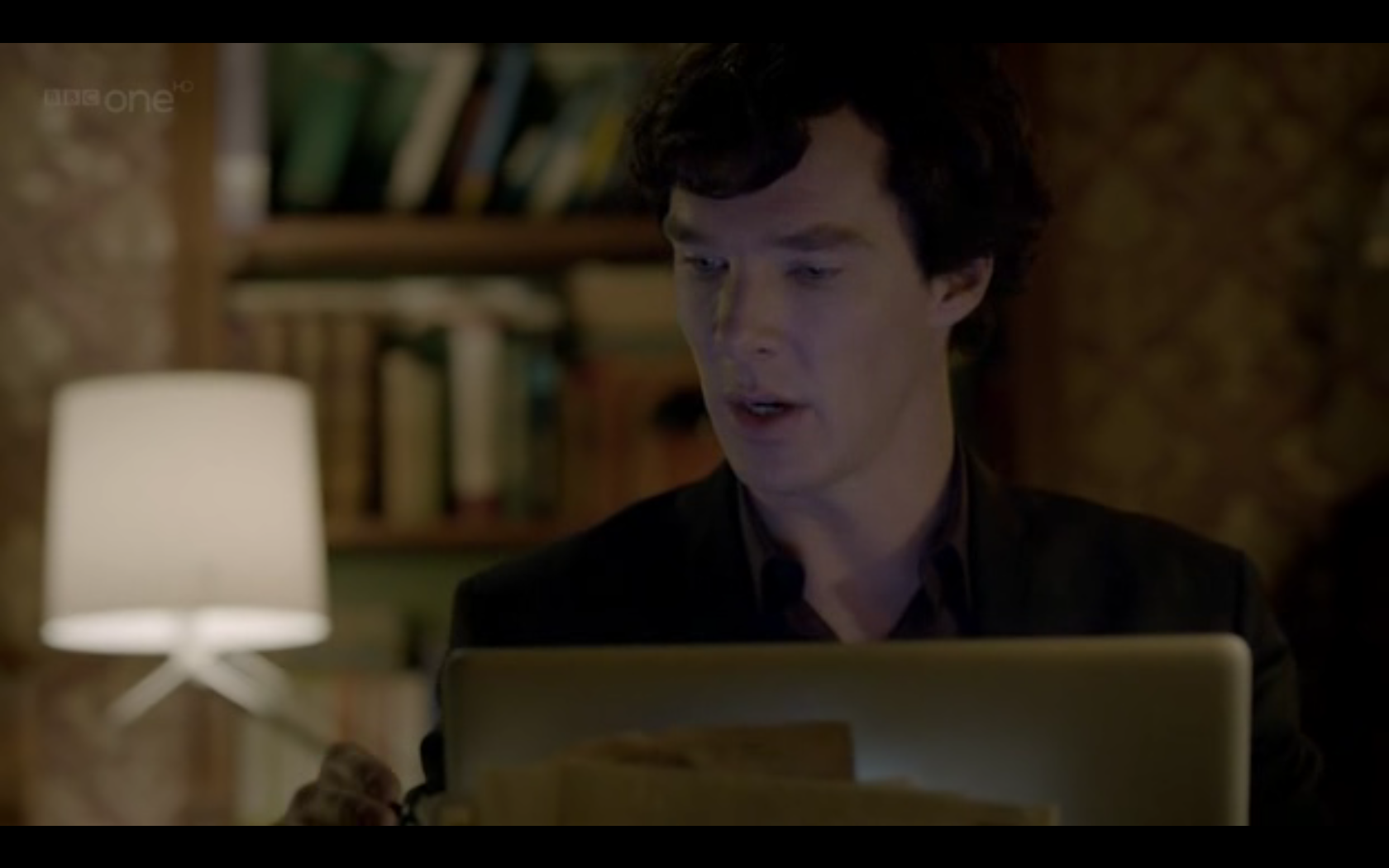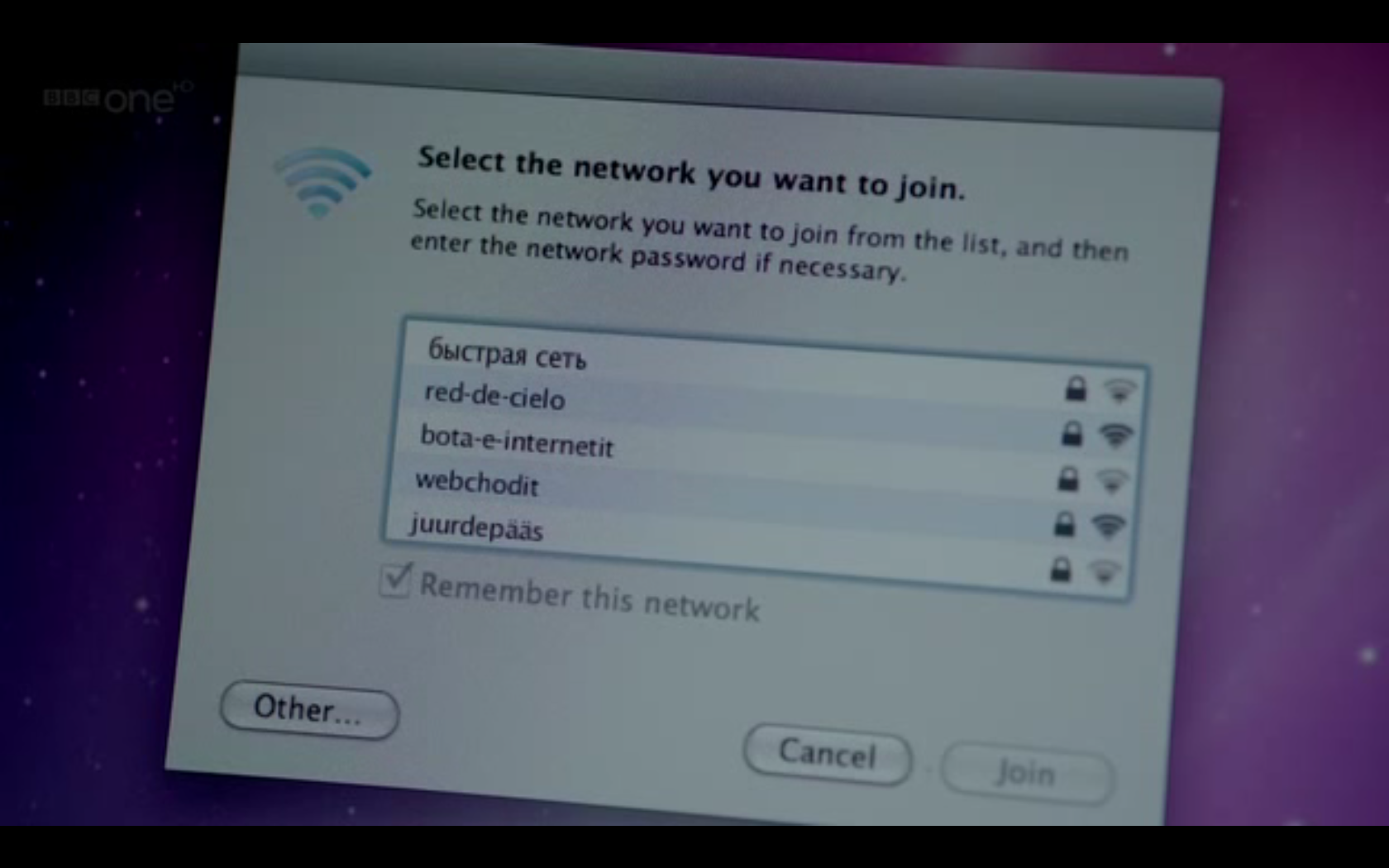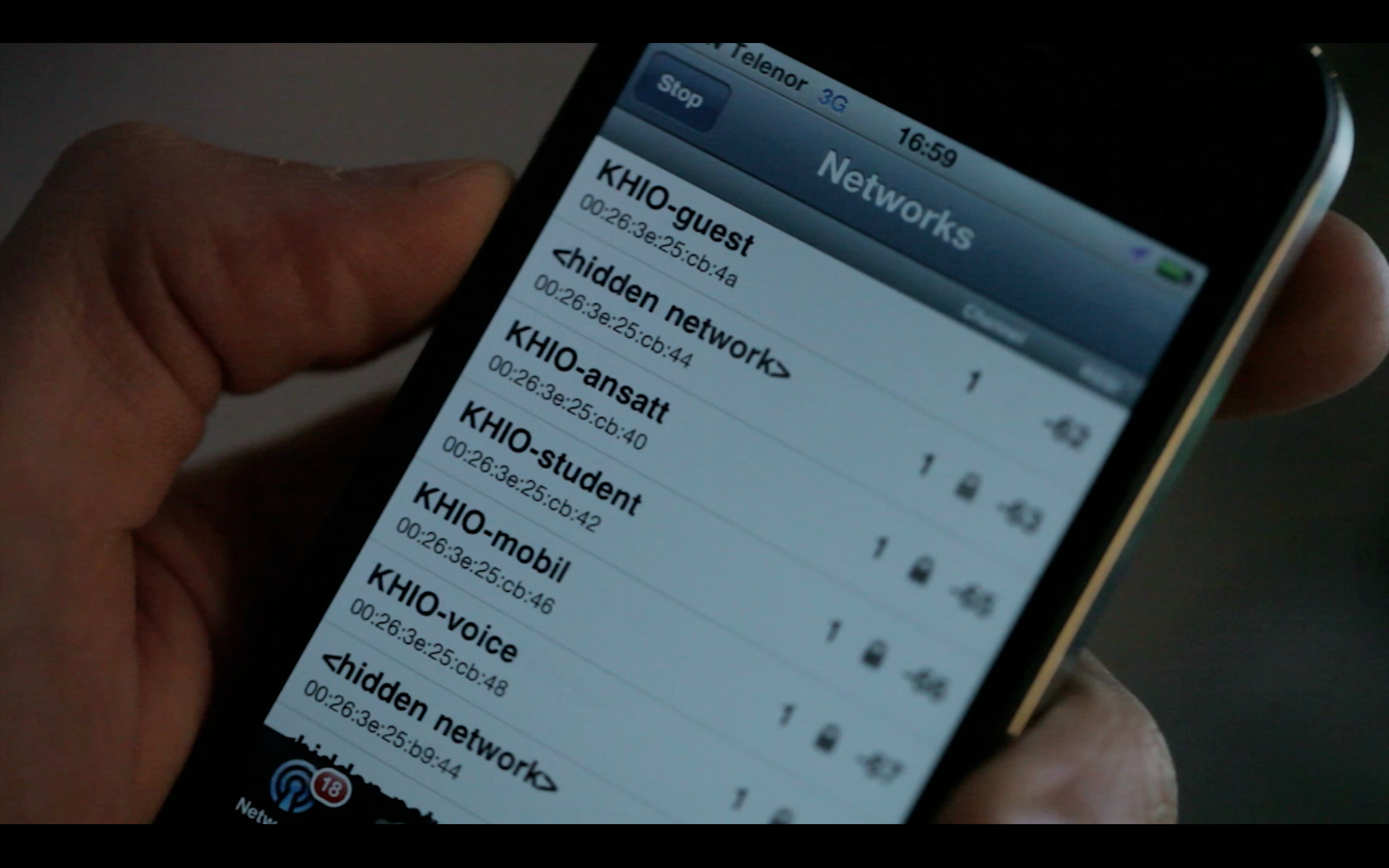Sherlock and WiFi
Einar Sneve Martinussen | 18. January 2012
I watched the latest episode of BBC's excellent Sherlock last night. I really like how the modern day Sherlock makes clever use of mundane networked city life. At its best the series weaves bits of everyday technologies into scenes as hints to what Sherlock is up to. For example iPhone message-sounds going of and the blue glow on Sherlock's pale face when he dramatically writes and reads his SMSs (that Watson crucially often don't get to see, but that we do). What I found specifically intriguing in this episode ('The Reichenbach Fall') was a brief scene where Sherlock uses nearby WiFi-networks to figure out what is going on in Baker street.
What I found specifically intriguing in this episode ('The Reichenbach Fall') was a brief scene where Sherlock uses nearby WiFi-networks to figure out what is going on in Baker street. Using names of nearby networks from his MacBook's WiFi scanner, Sherlock locates the group of transeuropean assassins that have moved into his neighborhood (A Russian, an Italian, an Albanian, a Czech and an Estonian). Clever Sherlock then concludes: "There is a surveillance web closing in on us right now".
Using names of nearby networks from his MacBook's WiFi scanner, Sherlock locates the group of transeuropean assassins that have moved into his neighborhood (A Russian, an Italian, an Albanian, a Czech and an Estonian). Clever Sherlock then concludes: "There is a surveillance web closing in on us right now". I think this interestingly plays on the common experience of WiFi networks as something that pops up on your computer, but understood as something that tells you what is going on beyond your walls. Or a way of reading 'the electromagnetic terrain of the networked city' as William Mitchell might have described it. I also find it amusing that someone have had to set up and name five WiFi networks as props for this scene (and have had to figure out what 'world of the internet' is in Albanian). When we worked on our WiFi visualisations in Oslo we also came across patters of multilingual network names. This could be indicators of diversity in inner-city neighborhoods, but most of the time we just found lots of institutions and default router names.
I think this interestingly plays on the common experience of WiFi networks as something that pops up on your computer, but understood as something that tells you what is going on beyond your walls. Or a way of reading 'the electromagnetic terrain of the networked city' as William Mitchell might have described it. I also find it amusing that someone have had to set up and name five WiFi networks as props for this scene (and have had to figure out what 'world of the internet' is in Albanian). When we worked on our WiFi visualisations in Oslo we also came across patters of multilingual network names. This could be indicators of diversity in inner-city neighborhoods, but most of the time we just found lots of institutions and default router names. Sherlock's WiFi-scene could be seen as just another element in modernising the character and the context. And maybe it is, but it could also be read as an example of a popular-cultural understanding of wireless networks. If this is the case, then it represents a grounded and sensible approach to technology. Here, technology isn't imagined as the typical futuristic science so common in current entertainment (e.g CSI), but is about ordinary consumer electronics in daily life. And crucially, Sherlock shows how spectacular this networked world already is.
Sherlock's WiFi-scene could be seen as just another element in modernising the character and the context. And maybe it is, but it could also be read as an example of a popular-cultural understanding of wireless networks. If this is the case, then it represents a grounded and sensible approach to technology. Here, technology isn't imagined as the typical futuristic science so common in current entertainment (e.g CSI), but is about ordinary consumer electronics in daily life. And crucially, Sherlock shows how spectacular this networked world already is.